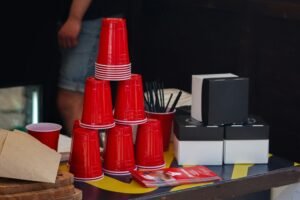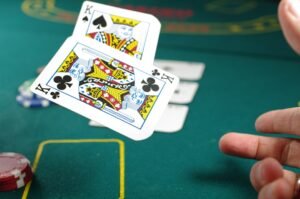Comprehensive Guide of Crossword Puzzles
Overview
Crossword puzzles are a popular word game that involves filling in a grid with words based on given clues. The grid consists of black and white squares, where the white squares are filled with letters to form words, and the black squares serve as separators. Crossword puzzles challenge players’ vocabulary, general knowledge, and problem-solving skills, making them an engaging and intellectually stimulating hobby. They can vary in difficulty, from simple puzzles found in newspapers to complex ones in specialized publications. Many enthusiasts enjoy the satisfaction of completing a challenging puzzle, and some even create their own, contributing to the rich culture surrounding this pastime.
History
The origins of crossword puzzles can be traced back to the early 20th century. The first known crossword puzzle was created by Arthur Wynne, a journalist from Liverpool, England, and was published in the New York World on December 21, 1913. This original puzzle was diamond-shaped and featured a simpler format than modern crosswords. The popularity of crossword puzzles surged in the 1920s, leading to the creation of dedicated puzzle books and magazines. Over the decades, various styles and formats have emerged, including themed puzzles, cryptic crosswords, and American-style grids. The advent of the internet has also transformed the crossword landscape, with numerous websites and apps offering daily puzzles and interactive features.
Popularity and Demographics
Crossword puzzles have a broad appeal, attracting a diverse audience across different age groups and backgrounds. They are particularly popular among adults, with many enjoying them as a daily routine in newspapers or online platforms. According to a survey conducted by the Pew Research Center, approximately 25% of American adults regularly engage in crossword puzzles, with a notable increase in participation among younger generations due to the availability of digital formats. The hobby is often associated with individuals who enjoy intellectual challenges and seek to improve their language skills. Additionally, crossword clubs and competitions have emerged, fostering a sense of community among enthusiasts who share a passion for this timeless pastime.
Sponsored Hobbyists and Vendors
Become a Sponsor!
Affiliate Disclaimer: Throughout some sections below, Hobby Spotlight may suggest some tools, equipment or material using affiliate links. By purchasing any of those items, Hobby Spotlight may earn a small commission. This helps fund our website, content and services without directly charging our users.
Getting Started
Essential Tools for Crossword Puzzles:
Beginner
- Crossword Puzzle Book: A collection of easy crossword puzzles for beginners.
- Pencil: A standard pencil for filling in crossword puzzles.
- Eraser: A basic eraser for correcting mistakes in crossword puzzles.
- Dictionary: A beginner-friendly dictionary for looking up words.
- Thesaurus: A thesaurus to help find synonyms and expand vocabulary.
Intermediate
- Advanced Crossword Puzzle Book: A collection of more challenging crossword puzzles.
- Crossword Puzzle App Subscription: A subscription to an app with daily crossword puzzles and hints.
- Puzzle Solver’s Guide: A guide with strategies and tips for solving crossword puzzles.
- High-Quality Mechanical Pencil: A mechanical pencil for precise filling in of crossword puzzles.
- Word Finder Tool: A tool to help find words based on given letters and patterns.
Basic Requirements and Initial Setup:
- Materials: A good quality crossword puzzle book or access to online crossword platforms is essential. Pencils or pens are also needed for solving puzzles.
- Quiet Space: A comfortable and quiet environment helps maintain focus and enhances the puzzle-solving experience.
- Reference Tools: Having a dictionary, thesaurus, or access to online resources can assist in finding answers and improving vocabulary.
Fundamental Skills to Learn:
- Vocabulary Building: Expanding your vocabulary is crucial for solving clues effectively.
- Pattern Recognition: Identifying common letter combinations and word structures aids in filling out the grid.
- Clue Interpretation: Understanding different types of clues, including puns and wordplay, is essential for success.
- Time Management: Developing the ability to pace yourself while solving puzzles can enhance enjoyment and reduce frustration.
- Research Skills: Knowing how to look up information quickly can help solve more challenging puzzles.
Sub-Hobby/Common Activities:
- Daily Crossword Challenges: Engaging with daily puzzles from newspapers or apps to maintain a consistent practice.
- Theme-Based Puzzles: Solving puzzles that focus on specific themes, such as movies, history, or geography.
- Collaborative Solving: Working with friends or family to solve puzzles together, sharing insights and strategies.
- Creating Your Own Puzzles: Designing and constructing personalized crossword puzzles for others to solve.
- Participating in Crossword Competitions: Joining local or online competitions to challenge your skills against others.
Terminology:
- Across: Clues that are solved horizontally in the crossword grid.
- Down: Clues that are solved vertically in the crossword grid.
- Grid: The square layout of the crossword puzzle where answers are filled in.
- Clue: A hint or question that leads to the answer in the puzzle.
- Answer: The word or phrase that fits into the grid based on the clues provided.
- Black Squares: The squares in the grid that separate words and are not filled with letters.
- Cross-reference: Using intersecting clues to help solve a particular answer in the grid.
- Theme: A unifying concept or idea that connects several clues or answers in a puzzle.
- Cryptic Clue: A type of clue that uses wordplay, anagrams, or other forms of misdirection to lead to the answer.
- Constructor: The person who creates the crossword puzzle, designing the grid and clues.
Advanced Topics and Specializations
Advanced Tools and Equipment:
- Deluxe Crossword Puzzle Book: A comprehensive collection of challenging crossword puzzles designed for experienced solvers.
- Crossword Puzzle Software: Advanced software for creating and solving custom crossword puzzles with various difficulty levels.
- Crossword Puzzle Dictionary: An extensive dictionary specifically for crossword clues, featuring synonyms and wordplay tips.
- Ergonomic Crossword Puzzle Board: A specially designed board that provides comfort and support while solving puzzles for extended periods.
- High-Quality Pencil Set: A set of precision pencils with varying hardness for making clear, erasable marks on crossword puzzles.
Advanced Projects and Achievements:
- Creating Themed Crossword Puzzles: Designing intricate puzzles centered around specific themes, such as movies, history, or literature, showcasing creativity and knowledge.
- Competing in Crossword Competitions: Participating in national or international crossword tournaments, demonstrating skill and speed in solving complex puzzles.
- Publishing a Crossword Puzzle Book: Compiling original puzzles into a published collection, contributing to the crossword community and sharing unique challenges with enthusiasts.
Advanced Techniques and Methods:
- Constructing Cryptic Crosswords: Mastering the art of creating cryptic clues that require lateral thinking and wordplay, adding an extra layer of challenge.
- Utilizing Software for Puzzle Creation: Leveraging specialized software tools to design and format puzzles efficiently, ensuring proper grid layout and clue placement.
- Analyzing Puzzle Patterns: Studying common themes and structures in existing puzzles to develop a deeper understanding of effective clue writing and grid design.
Specializations and Niche Areas:
- Cryptic Crosswords: Focusing on puzzles that use wordplay and indirect clues, appealing to those who enjoy a challenge.
- American vs. British Crosswords: Exploring the differences in style and clueing conventions between American and British crossword puzzles.
- Crossword Puzzle Apps: Engaging with mobile applications that offer daily puzzles, leaderboards, and community features for puzzle enthusiasts.
- Themed Puzzles: Creating puzzles that revolve around specific events, holidays, or pop culture phenomena, attracting niche audiences.
- Educational Crosswords: Designing puzzles that serve as learning tools for students, covering subjects like vocabulary, history, or science.
Future Trends and Innovations:
- Increased integration of technology in puzzle creation and solving, including AI-generated puzzles.
- Growing popularity of interactive and multimedia crosswords that incorporate audio and visual elements.
- Expansion of online communities and platforms for sharing and collaborating on crossword puzzles.
- Emphasis on accessibility, with puzzles designed for various skill levels and inclusive formats.
- Development of augmented reality (AR) crosswords that enhance the solving experience through immersive technology.
Technology Integrations:
- Online Puzzle Generators: Websites that allow users to create and share custom crossword puzzles easily.
- Mobile Apps for Solving: Applications that provide daily puzzles, hints, and tracking progress, making crosswords more accessible.
- AI-Assisted Clue Generation: Utilizing artificial intelligence to suggest clues and answers based on user input and preferences.
- Social Media Integration: Platforms that enable users to share their completed puzzles and challenge friends, fostering community engagement.
- Data Analytics for Puzzle Trends: Analyzing user data to identify popular themes and clue types, helping creators tailor their puzzles to audience preferences.
Further Learning and Resources
Books:
- The New York Times Crossword Puzzles for Beginners: A collection of easy puzzles from the iconic newspaper, designed to help newcomers learn the basics of crossword solving.
- Crossword Puzzle Book for Adults: 100 Easy Puzzles: This book features 100 easy crossword puzzles that are perfect for beginners to practice their skills and build confidence.
- The Everything Easy Crossword Book: A user-friendly guide filled with simple crossword puzzles that introduce the fundamentals of solving and clue interpretation.
- The New York Times Crossword Puzzles: 100 Years of Crosswords: A comprehensive collection of challenging puzzles that showcases the evolution of crossword puzzles over a century.
- Crossword Puzzle Challenges for Adults: This book contains a series of complex puzzles that test advanced solving techniques and vocabulary skills.
- The New York Times Sunday Crossword Puzzles: A compilation of the notoriously difficult Sunday crosswords, perfect for seasoned solvers looking for a challenge.
Websites:
- Crossword Compiler, https://www.crosswordcompiler.com – A comprehensive tool for creating and solving crosswords, offering a variety of features for enthusiasts.
- NY Times Crossword, https://www.nytimes.com/crosswords – The official site for the New York Times crossword puzzles, featuring daily puzzles and archives.
- Crossword Nexus, https://www.crosswordnexus.com – A resource for solving crosswords with a database of clues and answers, along with a puzzle generator.
- Boatload Puzzles, https://www.boatloadpuzzles.com – Offers a large collection of free online crossword puzzles that can be played directly in your browser.
- Cruciverb, http://www.cruciverb.com – A community-driven site for crossword enthusiasts, providing a database of crossword clues and answers.
Courses:
- MasterClass: Will Shortz Teaches Crossword Puzzles, https://www.masterclass.com/classes/will-shortz-teaches-crossword-puzzles – Learn the art of crossword puzzle creation from the New York Times crossword editor.
- Udemy: Crossword Puzzle Creation, https://www.udemy.com/course/crossword-puzzle-creation/ – A beginner-friendly course that teaches the fundamentals of creating engaging crossword puzzles.
- Coursera: The Science of Puzzles, https://www.coursera.org/learn/puzzles – Explore the cognitive aspects of puzzles, including crosswords, and how they enhance problem-solving skills.
- Skillshare: Crossword Puzzle Design, https://www.skillshare.com/classes/Crossword-Puzzle-Design/123456 – A project-based course focusing on the design and layout of crossword puzzles.
- LinkedIn Learning: Creating Crossword Puzzles, https://www.linkedin.com/learning/creating-crossword-puzzles – A course that covers the basics of crossword puzzle creation, including tips and tricks for beginners.
Content Creators and Community
Content Creators:
- Crossword Syndicate (YouTube): Offers tutorials and tips on solving various types of crossword puzzles, along with insights into puzzle construction.
- The Crossword Channel (YouTube): Focuses on daily crossword challenges, providing walkthroughs and strategies for both beginners and advanced solvers.
- Crossword Puzzle (Instagram): Shares daily puzzles, tips, and engaging content related to crossword solving and construction.
- Crossword Puzzle Live (Twitch): Live streams where viewers can solve puzzles together in real-time, fostering community interaction.
- Crossword Puzzle Community (Facebook): A vibrant group where enthusiasts share puzzles, tips, and discuss strategies.
- Crossword Puzzle Patreon (Patreon): Offers exclusive puzzles and content for supporters, along with insights into the puzzle-making process.
- Crossword Fiend (Website): A blog dedicated to reviewing and discussing daily crossword puzzles, providing insights and solving tips.
Online Forums and Social Media Groups:
- Reddit – /r/crossword: A community for sharing puzzles, discussing strategies, and seeking help with challenging clues.
- Facebook Crossword Groups: Various groups where members share puzzles, tips, and experiences related to crossword solving.
- Crossword Puzzle Discord: An interactive platform for live discussions, puzzle sharing, and community support.
- Instagram Hashtags (#crossword, #crosswordpuzzle): Follow trending puzzles, tips, and engaging visuals from the crossword community.
- Pinterest Boards: Discover a variety of crossword puzzles and solving techniques curated by enthusiasts.
Local Clubs and Organizations:
- Local Crossword Clubs: Many communities host clubs where members gather to solve puzzles together and share strategies.
- Public Libraries: Often organize crossword puzzle events and workshops for enthusiasts of all ages.
- Senior Centers: Frequently host crossword puzzle groups that promote social interaction and cognitive engagement.
- Community Education Programs: Offer classes focused on puzzle-solving techniques and strategies for all skill levels.
- Meetup Groups: Platforms like Meetup.com host local crossword puzzle gatherings and competitions.
Events, Meetups, and Conventions:
- American Crossword Puzzle Tournament: An annual event where crossword enthusiasts compete and attend workshops led by experts.
- Local Puzzle Competitions: Regional contests that encourage skill development and community engagement.
- Word Games Festivals: Many festivals feature crossword puzzle challenges, workshops, and interactive sessions.
- Workshops at Literary Festivals: Learn from professional puzzle creators and solvers in engaging sessions.
- Puzzle Conventions: Events that combine competitions, networking, and showcases of new puzzle-related products.
Associated Hobbies
- Sudoku: A number-based puzzle that challenges logic and reasoning skills, often enjoyed by crossword enthusiasts as a complementary brain exercise.
- Word Searches: A fun and engaging way to enhance vocabulary and pattern recognition, where players find words hidden in a grid of letters.
- Jigsaw Puzzles: A tactile and visual hobby that involves assembling pieces to create a complete picture, providing a satisfying challenge similar to solving crosswords.
- Scrabble: A classic word game that combines vocabulary skills with strategy, allowing players to create words on a game board for points, appealing to crossword lovers.
- Trivia Games: Engaging in trivia can enhance general knowledge and memory, often overlapping with the knowledge required for crossword puzzles.
- Brain Teasers: Short puzzles or riddles that stimulate critical thinking and problem-solving skills, providing a fun challenge for crossword enthusiasts.
- Language Learning: Many crossword fans enjoy learning new languages, as it enhances their vocabulary and understanding of wordplay, which is essential in crossword puzzles.
- Creative Writing: Writing poetry or short stories can be a natural extension of the wordplay and creativity involved in solving crosswords, allowing for self-expression and exploration of language.
Cost and Budgeting
Initial Investment and Ongoing Costs:
- Initial Investment: The cost to start solving crossword puzzles is minimal. You can begin with a simple newspaper subscription, which typically costs around $10-$30 per month, depending on the publication. Alternatively, many online platforms and apps offer free access to daily puzzles. If you prefer books, a collection of crossword puzzle books can range from $5 to $20 each.
- Ongoing Costs: Ongoing costs are generally low. If you subscribe to a newspaper or a puzzle magazine, you may incur monthly or annual fees. Additionally, if you choose to purchase puzzle books, you might spend $20-$50 annually, depending on how many books you buy. Some premium apps may charge a subscription fee, usually around $5 per month.
Budget-Friendly Options:
- Free Online Puzzles: Websites like the New York Times, USA Today, and various puzzle-specific sites offer free daily crossword puzzles that you can solve online or print out.
- Library Resources: Many public libraries provide access to crossword puzzle books and magazines for free. You can borrow them and enjoy solving puzzles without any cost.
- Mobile Apps: There are numerous free crossword puzzle apps available for smartphones and tablets, allowing you to solve puzzles on the go without any financial investment.
Where to Buy:
- Bookstores: Major bookstores like Barnes & Noble or independent shops often carry a variety of crossword puzzle books, catering to different skill levels.
- Online Retailers: Websites like Amazon and eBay offer a wide selection of crossword puzzle books, often at discounted prices, with the convenience of home delivery.
- Subscription Services: Some websites and apps offer subscription services for daily puzzles, providing a steady stream of new challenges for a monthly fee.
Money Making
How to Turn the Hobby into a Profession or Side Hustle:
- Crossword Puzzle Creator: Use your skills to design and create original crossword puzzles for newspapers, magazines, or online platforms. You can sell your puzzles to publications or create a subscription service where users can access new puzzles regularly.
- Crossword Puzzle Author: Write and publish books of crossword puzzles, targeting different skill levels or themes. Self-publishing platforms make it easy to reach a wide audience, and you can market your books through social media and puzzle enthusiast communities.
- Crossword Puzzle App Developer: If you have programming skills, consider developing a mobile app that features daily crossword puzzles. You can monetize the app through in-app purchases, ads, or subscription models, providing users with fresh content regularly.
- Crossword Puzzle Blogger or Vlogger: Start a blog or YouTube channel dedicated to crossword puzzles. Share tips, strategies, and reviews of different puzzle books or apps. Monetize your content through affiliate marketing, sponsorships, or ad revenue.
- Crossword Puzzle Workshops and Classes: Offer workshops or online classes teaching others how to solve or create crossword puzzles. You can cater to different age groups and skill levels, providing a fun and engaging way for participants to enhance their puzzle-solving abilities.
Benefits and Enjoyment
Physical, Mental, and Social Benefits:
- Cognitive Stimulation: Engaging in crossword puzzles enhances brain function by improving vocabulary, memory, and problem-solving skills. The challenge of finding the right words stimulates mental agility and keeps the mind sharp.
- Stress Relief: Solving crossword puzzles can be a relaxing activity that helps reduce stress and anxiety. Focusing on the puzzle allows individuals to escape from daily pressures and immerse themselves in a fun and engaging task.
- Social Interaction: Crossword puzzles can be enjoyed in groups, fostering social connections. Whether working on a puzzle with friends or participating in crossword clubs, this hobby encourages collaboration and communication.
Success Stories and Inspirational Examples:
- Will Shortz: As the editor of The New York Times crossword puzzle, Will Shortz has become a prominent figure in the world of puzzles. His passion for crosswords has led him to create a successful career, inspiring countless enthusiasts to engage with this hobby.
- Merl Reagle: A celebrated crossword constructor, Merl Reagle was known for his clever and humorous puzzles. His work has appeared in various publications, and he has inspired many with his innovative approach to crossword construction.
- Debbie McLeod: A dedicated crossword enthusiast, Debbie McLeod turned her love for puzzles into a community project, organizing local crossword competitions that brought together puzzle lovers and fostered a sense of camaraderie among participants.
Ways to Enjoy and Grow in the Hobby:
- Challenge Yourself with Different Types: Explore various types of crossword puzzles, such as themed puzzles, cryptic crosswords, or even online daily challenges. This variety will keep the hobby fresh and exciting.
- Join a Crossword Club: Connecting with others who share your passion can enhance your experience. Look for local or online crossword clubs where you can share tips, collaborate on puzzles, and participate in competitions.
- Practice Regularly: Set aside time each day or week to work on crossword puzzles. Regular practice will improve your skills, expand your vocabulary, and increase your enjoyment of the hobby.
Challenges and Solutions
Common Challenges Faced by Hobbyists:
- Difficulty Level: Crossword puzzles can vary significantly in difficulty, and beginners may find themselves frustrated by challenging clues and obscure references. This can lead to a lack of motivation to continue solving.
- Time Consumption: Completing a crossword puzzle can take a considerable amount of time, especially for more complex ones. Many hobbyists struggle to find the time to dedicate to this activity amidst their busy schedules.
- Access to Quality Puzzles: Not all crossword puzzles are created equal. Some may be poorly constructed or lack engaging clues, making it difficult for enthusiasts to find high-quality puzzles that keep them challenged and entertained.
Tips for Overcoming These Challenges:
- Start with Easier Puzzles: Begin with simpler crossword puzzles to build your confidence and skills. As you become more comfortable, gradually progress to more challenging puzzles.
- Set Aside Dedicated Time: Allocate specific time slots in your week for solving crossword puzzles. Treat this time as a relaxing break from your daily routine, allowing you to enjoy the hobby without feeling rushed.
- Explore Various Sources: Look for crossword puzzles in different formats, such as newspapers, online platforms, or puzzle books. This will help you find a variety of quality puzzles that suit your interests and skill level.
Safety Considerations and Best Practices:
- Ensure you have a comfortable and well-lit space to work on your puzzles to avoid eye strain and discomfort.
- Take regular breaks to stretch and rest your eyes, especially if you are working on a puzzle for an extended period.
- Keep a dictionary or thesaurus handy for reference, but try to rely on your knowledge and intuition first to enhance your problem-solving skills.
- Engage with crossword communities online or in-person to share tips, strategies, and resources, fostering a supportive environment for your hobby.
- Practice patience and persistence; not every puzzle will be solved quickly, and it’s important to enjoy the process of learning and improving your skills.
Conclusion and Encouragement
Recap of Key Points:
- Crossword puzzles are a fantastic way to enhance vocabulary and improve language skills, as they challenge you to think of words that fit specific clues.
- They come in various difficulty levels, making them suitable for everyone from beginners to seasoned puzzle solvers, allowing for gradual skill development.
- Crossword puzzles can be a great mental exercise, helping to keep your mind sharp and potentially reducing the risk of cognitive decline as you age.
- They can be enjoyed alone or in groups, making them a versatile hobby that can foster social interaction and teamwork when solved collaboratively.
- With the rise of digital platforms, crossword puzzles are more accessible than ever, available on apps and websites, allowing you to solve them anytime and anywhere.
Encouragement to Start and Enjoy the Hobby:
- Starting with crossword puzzles is easy; you can find beginner-friendly puzzles in newspapers, magazines, or online, making it simple to dive in.
- Engaging in crossword puzzles can be a relaxing way to unwind after a long day, providing a satisfying sense of accomplishment when you complete a puzzle.
- Joining a crossword puzzle community, whether online or in-person, can enhance your experience, offering support, tips, and the joy of sharing solutions with fellow enthusiasts.
Final Tips and Motivational Thoughts:
- Don’t be discouraged by challenging puzzles; they are an opportunity to learn and expand your knowledge. Take your time and enjoy the process of discovery.
- Keep a dictionary or thesaurus handy, as they can be valuable resources for finding answers and learning new words along the way.
- Celebrate your progress, whether it’s completing a particularly tough puzzle or simply improving your skills over time. Every small victory counts in your crossword journey.

















